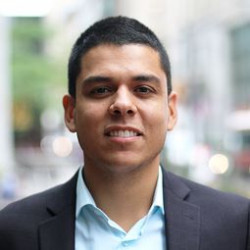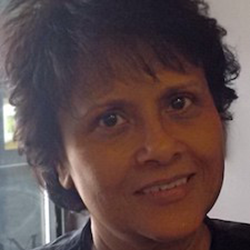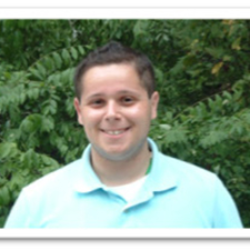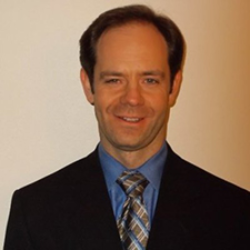Jacob Pilon
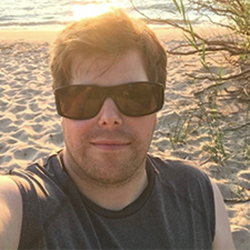
Social Worker, Department of Defence
Social Work
Why did you decide to become a social worker?
Looking back, I feel like social work was always going to be a natural fit for me. Even in high school I found myself drawn towards participation in various experiences and initiatives; canned food drives for Toronto Food Bank, helping organize charity benefit concerts, and youth engagement conferences on issues like global trade, sweatshop labour, armed conflict and child soldiers. After high school, I was initially interested in Journalism and applied to a few programs. However, once I attended a Social Service Worker program orientation, I switched tracks. The field seemed like a seamless fit for my insatiable interest in critical socio-political analysis and hands-on work with people. My academic passion continued to grow, and after two years at the college level, I applied for and was accepted to York University’s BSW program.
Can you tell me about your social work journey and how you came to your position?
After completing my BSW, I was accepted to York University’s advanced standing MSW program. Thanks in large part to the determined advocacy of my placement coordinator, I had a unique opportunity to complete my placement practicum at 31 CF Health Services, Canadian Forces Base Borden as a social work student. The focus of my personal research paper was on the experience of Military Social Workers in North America.
Following my graduation from York in 2012, I worked at various agencies across Peel region. I worked in community mental health, housing support, delivered anger management psycho-education, provided psychotherapy through a private practice and conducted community outreach to clients following hospital discharge.
In 2016, I helped a client who had served in World War II to apply for some benefit programs with Veterans Affairs Canada. This gentleman shared with me his wartime experience, paraphernalia and medals. After this profound experience I decided to apply to Veterans Affairs Canada as well; for a job with the department. I ended up accepting a case manager opportunity in Windsor Ontario and worked there for two years. During this time I was also able to serve as a Union Steward and then Union Local Vice President, learning all about worker’s rights and labour relations. In 2019, I relocated to Barrie Ontario and continued as a VAC case manager at the CFB Borden office, working with medically releasing military members as they transitioned from military to civilian life.
Where do you work, what’s your job title and can you provide some information on what a typical work week is like for you?
I currently work full time for the Department of National Defense as a Social Worker. A typical work week is made up of individual therapy sessions, screening sessions for walk-ins, and pre-deployment/post-deployment psychosocial screenings for soldiers being sent on missions abroad or returning home. And of course, completing case notes.
Can you tell me about your current position, what you love, and what are some of the challenges?
I am part of the Psychosocial team at 31 CF H SVCS C, CFB Borden, a team consisting of civilian social workers, mental health nurse and one uniformed social worker team lead. Our team focuses on providing short term, goal-focused therapeutic interventions for active duty Canadian Armed Forces members. One aspect I love about my position is the ability to foster genuine therapeutic alliances with clients, and work with them collaboratively towards gaining new insights into the struggles they face. Challenges include working with limited capacity to advocate systemically for clients, as they are governed by an administrative military chain of command that I fall outside of. It can also sometimes be difficult working with military members as a civilian, but by the same token, often times military members request to work exclusively with civilian rather than uniformed clinicians.
What did you take away from your Social Work program?
The School of Social Work enabled me to begin the journey back to where I currently find myself; working as a federal-level clinical social worker practicing with military members, many of whom have experienced complex trauma and face various specific structural barriers. York U Social Work gave me the tools to approach client-centred interventions from a place of critical reflexive practice. Beyond that, the BSW and MSW programs at York U gave me a critical lens of analysis which has formed the way I approach my work on a daily basis.
What’s the best career decision you’ve ever made?
Applying to positions I didn’t think I would get, especially the ones that seemed like long shots. Not being afraid of the prospect to geographically relocate to new communities.
What advice would you give to fresh graduates?
Continue to apply for different positions, volunteer and network in order to get to where you want to be in the profession. Keep in contact with your fellow graduates and profs and keep advancing and learning. The degree is not just the attainment of knowledge, but the key to a career of ongoing education and practical application. Don’t give up, but don’t settle for less than you deserve as a professional.
Self-care is very important, what would you recommend?
If you can, go on a walk every day! Leaving work at work is important to maintain mental resiliency and emotional engagement. Don’t forget to drink lots of water, especially if you also love to drink coffee (like me).
Browse more Alumni profiles
Communication Studies
Bachelor of Arts (BA) - Honours
2008
Manager, Communications and Change Management, Scotiabank
Graduate Program in Public Policy, Administration & Law
Master of Public Policy, Administration and Law (MPPAL)
2013
Policy & Program Advisor, Ontario Ministry of Transportation
Graduate Program in Public Policy, Administration & Law
Master of Public Policy, Administration and Law (MPPAL)
2015
Project Policy Analyst, Ministry of Health and Long-Term Care, Government of Ontario

